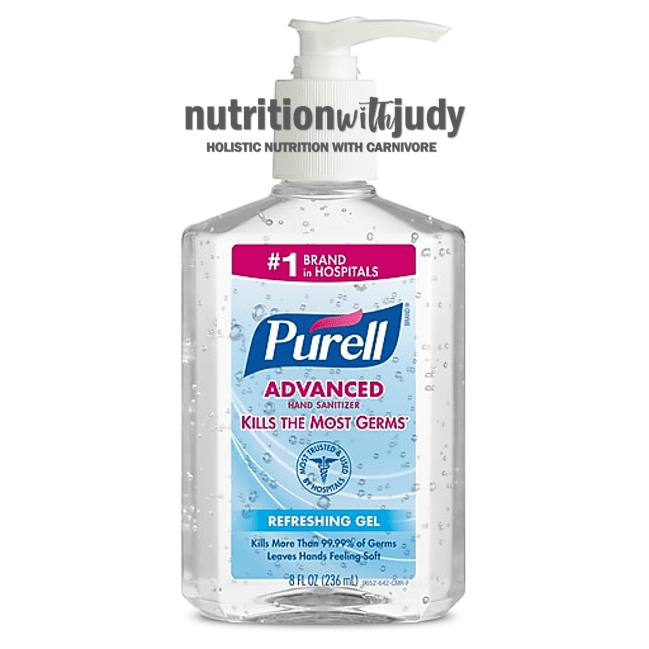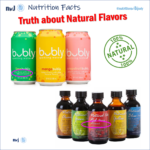

Why You Need to Stop Using Hand Sanitizers


In 2016, the USDA banned 19 antibacterial additives found in antibacterial soaps.
Why?
Because if you’re washing your hands with antibacterial soap, you’re exposing yourself and the environment to increased amounts of harmful chemicals without any measurable benefit.
And so FDA banned triclosan and 18 other common antibacterial agents to household soaps. The additives can be hormone disrupting, immune weakening and antibiotic resisting toxic chemicals. They may also cause muscle weakness.
Many companies have replaced triclosan with one of three other chemicals in their antibacterial products. These 3 ingredients include benzalkonium chloride, benzethonium chloride and/or chloroxylenol (PCMX). The FDA has given companies another year to provide more data on the safety and effectiveness of these ingredients.
Oh and just as an FYI, triclosan can still be found in personal care products such as deodorants and toothpaste.
The rule is part of a broader effort by the FDA to encourage consumers to skip antibacterial soaps and get back to using regular soap and water.
“There’s no data demonstrating that antibacterial soaps are better at preventing illness than washing with plain soap and water,” the agency said in a press release.
What Are the Complete List of Banned Chemicals?
- Cloflucarban
- Fluorosalan
- Hexachlorophene
- Hexylresorcinol
- Iodine complex (ammonium ether sulfate and polyoxyethylene sorbitan monolaurate)
- Iodine complex (phosphate ester of alkylaryloxy polyethylene glycol)
- Nonylphenoxypoly (ethyleneoxy) ethanoliodine
- Poloxamer-iodine complex
- Povidone-iodine 5 to 10 percent
- Undecoylium chloride iodine complex
- Methylbenzethonium chloride
- Phenol (greater than 1.5 percent)
- Phenol (less than 1.5 percent) 16
- Secondary amyltricresols
- Sodium oxychlorosene
- Tribromsalan
- Triclocarban
- Triclosan
- Triple dye
The best thing to do is check your products to make sure these are not included. If they are, skip it.
FDA isn’t known to swiftly act on banning items. Case in point, the FDA reviewed Red Dye No. 3 over 27 times and they still have not banned it completely. Red No 3 (think maraschino cherries) has been known to be carcinogenic. Red dye 3 has shown to stimulate hormones that produce thyroid tumors in laboratory rats.
FDA has only been able to remove it from cosmetic and personal care products. Red Dye No. 3 is still in many food products. (e.g., fruit roll ups) What’s saddening is that most of the foods with red dye are in kid-focused products.
In my upcoming book, I talk about the dangers of food coloring and a detailed look into food coloring will be available as a mini-guide in the future.
I digress.
If FDA has a difficult time banning chemicals and additives, then when they successfully ban chemicals, you can safely assume these chemicals are pretty bad.
What About Hand Sanitizer?
Many hand sanitizers are now alcohol-based. While these ingredients are not officially banned, they are also not in the clear.
“At this time, three active ingredients—benzalkonium chloride, ethyl alcohol, and isopropyl alcohol—are being deferred from further rulemaking to allow for the ongoing study and submission of additional safety and effectiveness data necessary to make a determination regarding whether these active ingredients are generally recognized as safe and effective for use in OTC consumer antiseptic rub products. Their status will be addressed either after completion and analysis of the studies or at another time, if these studies are not completed. At this time, the FDA does not intend to take action to remove hand sanitizers containing these three active ingredients from the market” the FDA announcement said. (April, 2019—emphasis added)
There is clear evidence of carcinogenic properties of ethyl alcohol when ingested as an alcoholic beverage but since there is not strong enough evidence (yet) to associate topical ethanol use with an increased risk of skin cancer, FDA has decided not to ban the ethyl alcohol in hand sanitizers—just yet.
But why not?
The NJ Department of Health Publicly Released a Hazardous Substance Fact Sheet and Here’s Some Highlights of What’s in Your Hand Sanitizer:
- Ethyl alcohol can affect you when inhaled and by passing through the skin
- High concentrations may damage the fetus
- Contact can irritate the skin and eyes. Prolonged or repeated exposure can cause drying and cracking of the skin with peeling, redness and itching
- Exposure to Ethyl Alcohol can cause headache, drowsiness, nausea, vomiting and unconsciousness. It can also affect concentration and vision.
- Repeated high exposure may affect the liver and the nervous system
- Ethyl Alcohol is a flammable liquid and a dangerous fire hazard
But sure, It’s Safe for Us and Our Kids to Use as Hand Sanitizers.
We usually use hand sanitizers and have our children use hand sanitizers when we don’t have easy access to soap and water. This is often times the case when our kids go to the park, playground or birthday parties. Too many times, children use hand sanitizers before eating. They’re consuming at least 60% proof alcohol (some are 75% proof alcohol) and little doses of a flammable liquid that is a dangerous fire hazard.
The Center for Disease Control published a report that calls attention to hand sanitizer risk in children. From 2011 – 2015, U.S. poison control centers received nearly 85,000 calls about hand sanitizer exposures among children.
To add insult to injury, hand sanitizers may not even remove harmful chemicals, like pesticides and heavy metals. In one study, people who reported using hand sanitizer to clean hands had increased levels of pesticides in their bodies. In another study, use of alcohol-based hand sanitizers and preferential use of antibacterial hand soaps had an increased risk of norovirus outbreaks in long term care facilities.
I see hand sanitizers everywhere. There are gallon-sized containers at indoor gyms, kid play parks and restaurants. Many of us like to have easy access to hand sanitizers and so we have it as part of our keychains and diaper bags.
Just Use Good Quality Soap and Water. (ingredients matter)
And if the only option is antibacterial soap, just rub your hands with warm water. A little bit of food grease and playground germs will not kill you. And even if there were deadly playground germs, your ethyl alcohol hand sanitizer is no match for those kinds of germs.
We did just fine growing up without hand sanitizers and antibacterial soaps. I’d rather have my kids catch a cold and build their immune system than risk toxins in their body and damaging their gut microbiome.
It’s ironic because we use these hand sanitizers to stave off illness but it is these exact things that cause us to be ill.
Additional Sources:
https://nj.gov/health/eoh/rtkweb/documents/fs/0844.pdf
https://www.pharmacytoday.org/article/S1042-0991(17)30602-3/pdf
https://www.ncbi.nlm.nih.gov/pmc/articles/PMC2596158/
https://www.cdc.gov/handwashing/show-me-the-science-hand-sanitizer.html
https://www.thestreet.com/story/12966410/1/5-hidden-dangers-of-hand-sanitizers.html
https://www.ncbi.nlm.nih.gov/pmc/articles/PMC3866960/pdf/nihms375512.pdf
https://www.ncbi.nlm.nih.gov/pubmed/21411187
https://www.cdc.gov/handwashing/show-me-the-science-hand-sanitizer.html#twentyseven




Bionaze Oral Probiotic
November 11, 2019 at 5:01 amThanks for letting us know about this helpful information. It’s very alarming knowing that most of the foods with red dye are in kid-focused products.
Herpezine
September 3, 2020 at 10:16 pmThis was a bit of an interesting article for me to read, because, in the past, I hate using hand sanitizer. In fact, I could almost say that I was in love to it now.
Nutrition with Judy
September 4, 2020 at 1:13 amSince Covid, I’ve done extra research and haven’t had an opportunity to update the blog post. I am really not a fan of sanitizers. I’ll post a newer blog post soon– although it’ll probably be pretty controversial during these times.
Lisa Corazza
April 2, 2024 at 12:04 pmThank you for this. Quick question…what do you recommend for those who work in the medical field? Two of our children work in hospitals. Are there any alternatives they could use that would satisfy the hospitals’ requirements?